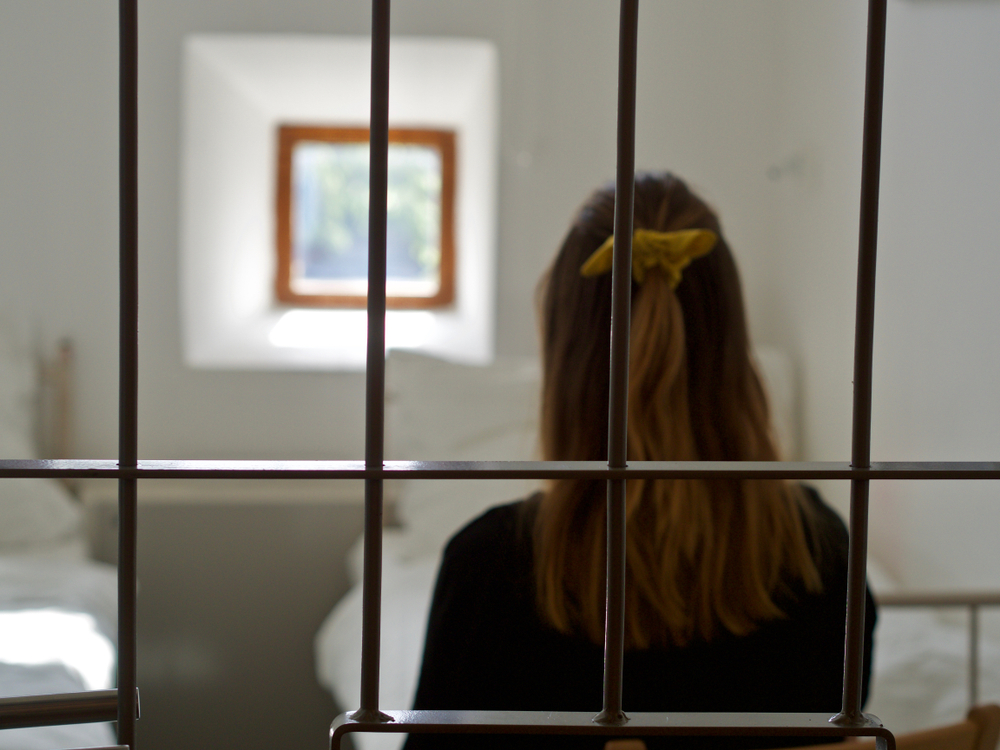(This column is dedicated to the memory of Paul DeMuro, who passed earlier this week from a non-COVID-19 related illness. Paul was a longtime leader and mentor to so many in the work to reduce incarceration and improve the lives of young people and families in the justice system.)
![]() On April 1, Kenneth Moore, a youth development representative at Washington, D.C.’s juvenile justice agency died of COVID-19. Kenneth was the first correctional officer in the nation to succumb to the virus. Today, many more staff and youth inside correctional facilities are sick and dying.
On April 1, Kenneth Moore, a youth development representative at Washington, D.C.’s juvenile justice agency died of COVID-19. Kenneth was the first correctional officer in the nation to succumb to the virus. Today, many more staff and youth inside correctional facilities are sick and dying.

Marc Schindler
I had the privilege of helping lead the District’s juvenile justice agency, the Department of Youth Rehabilitation Services (DYRS), between 2005 and 2010. Prior to my service in government, I worked exclusively as an attorney advocating for youth and families in the justice system. This included suing government agencies over the conditions of youth confinement in corrections facilities.
I still recall one of my first meetings, as DYRS general counsel, with attorneys who were suing the agency over dangerous conditions within our old, overcrowded and poorly run youth prison. Their expert’s report on the risk of suicide was chilling. It was only by luck that a youth in our prison had not already committed suicide. When the expert completed his report, all eyes turned to me.
Prior to that, I would have been one of the attorneys calling for change, maybe even banging my fist on the table and demanding that action be taken immediately. However, I was now representing the government, and charged with making changes. I can tell you, actually fixing problems is a lot more difficult than calling for them to be fixed.
I’ll admit that when I joined DYRS, I viewed the staff as a part of the problem in a dysfunctional and, at that time, abusive system. I assumed they weren’t working with the kids’ best interests in mind; otherwise they wouldn’t use excessive force, verbally abuse youth or place them in solitary confinement for long periods of time.
Where things go wrong
Things are not always as simple as they seem. I quickly learned that a large majority of staff were not bad people intentionally harming young people. Sure, there were some who were not suited to working with kids. Yet the vast majority had come to the job because they wanted to help kids.
Unfortunately, abusive and neglectful treatment often resulted from a lack of proper training and tools for staff to effectively work with challenging youth inside a poorly designed and overcrowded facility. Other times, it happened out of self-preservation, such as when they would lock kids down in their rooms because there were too many of them, and staff didn’t have the capacity to safely manage the situation.
Over time, staff were given training and tools to work with young people, and we significantly downsized the number of youth in our facilities. We did this by placing in the community low- and moderate-risk youth, who were the vast majority of the youth locked up at the time.
With fewer youth confined, the staff was able to build individual relationships in ways that were not possible before. Many of the staff said they were finally able to do what they had taken the job for: to mentor young people and help them get back on the right path.
More than numbers
I’m thinking of these staff and the young people they are responsible for now. They are facing COVID-19 on the front lines in facilities that have poor ventilation and no room for social distancing. Prisons were not designed for pandemics. One incarcerated person I recently talked to said being in a correctional facility right now is “like living in a petri dish.”
So, today, I’m particularly thinking of Kenneth Moore.
Moore was 52 years old. He was a father figure whose “compassion and commitment to our youth as a public servant will have a lasting impact on countless youth, families and DYRS staff,” said DYRS Director Clinton Lacey.
While Moore was the first correctional officer in the nation to succumb to the virus, sadly, he wasn’t the last. Already, another juvenile justice worker in New York has died. It is imperative that we work as hard as possible to reduce the number of victims by quickly releasing as many youth and adults from jails and prisons as possible. In normal times it is the right policy, today it is a matter of life and death.
As the number of victims increases, we can’t forget that each of those individuals is more than a number — with family, friends and loved ones — including those in our criminal and juvenile justice systems. Let’s remember the Kenneth Moores of the world, the incarcerated people locked up today and those who have passed thus far, including, among others, Nicholas Rodriguez, 43, and William Wilson, 84, and their families.
Marc Schindler is executive director of the Justice Policy Institute and former interim director of Washington, D.C.’s Department of Youth Rehabilitation Services.
This column has been updated.
